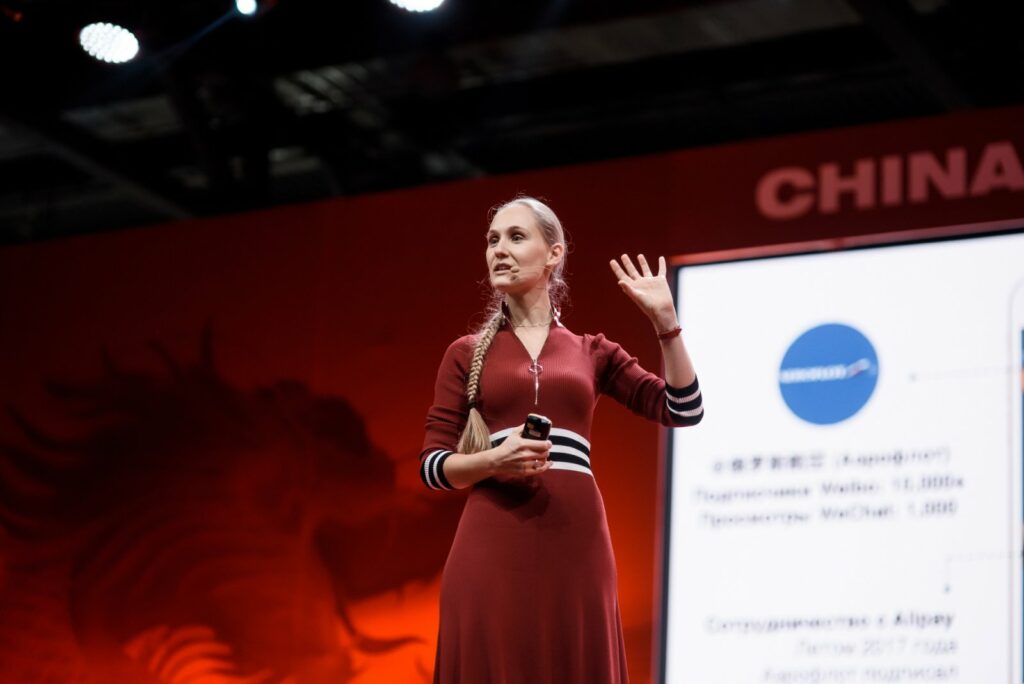In today’s fast-paced business world, the role of a keynote speaker has become increasingly crucial for conferences, corporate events, and industry gatherings. A keynote speaker is an expert who delivers the main address at an event, setting the tone and central theme for the entire gathering. Keynote speakers are often renowned professionals in their fields, capable of engaging audiences with their deep knowledge, unique insights, and compelling storytelling abilities.
When it comes to China, the role of keynote speakers becomes even more significant. As a rapidly evolving market, China presents both challenges and opportunities for businesses looking to expand their global footprint. Keynote speakers who have a deep understanding of China’s business landscape can help bridge cultural gaps and provide valuable perspectives on global trends.
China’s event industry has been growing rapidly, making it crucial to understand the keynote speaker definition and their impact. The market size reached 62.1 billion yuan (approximately $9.6 billion) in 2021 and is expected to exceed 100 billion yuan by 2025. This growth has led to an increased demand for skilled keynote speakers who can deliver impactful messages and inspire audiences.
When selecting a keynote speaker for China-related topics, it’s essential to choose someone with firsthand experience and a deep understanding of the country’s unique business ecosystem. Ashley Dudarenok stands out as a prime example of such an expert. Her extensive knowledge of customer centricity, technology in action, and future of retail makes her an invaluable resource for businesses looking to expand their presence in China. With her finger on the pulse of China’s rapidly changing business landscape, Ashley can offer audiences fresh perspectives and practical strategies that can be immediately applied to their own ventures.
Keynote Speaker Definition
What is a keynote speaker? A keynote speaker is an individual chosen to deliver the main address at an event, tasked with capturing the essence of the gathering’s theme or purpose. This person is typically a thought leader, industry expert, or influential figure whose insights and experiences align with the event’s objectives. For example, at a technology conference, a keynote speaker might be a renowned tech entrepreneur like Elon Musk or a visionary CEO like Satya Nadella of Microsoft.
Characteristics of an Effective Keynote Speaker
An effective keynote speaker possesses a unique blend of qualities that enable them to captivate, inspire, and leave a lasting impact on their audience. At the core of these attributes lies exceptional storytelling ability, allowing speakers to weave personal experiences and anecdotes into their presentations, creating a powerful emotional connection with listeners. According to a 2023 study by the National Speakers Association, 92% of event organizers consider storytelling skills as a top priority when selecting keynote speakers. This skill is complemented by a deep passion for their subject matter, which shines through in their delivery and helps to ignite enthusiasm within the audience. Equally important is the speaker’s capacity to engage with their listeners, breaking down barriers and fostering a sense of connection through interactive elements, humor, and relatable content.

Authenticity and credibility form the bedrock of a compelling keynote address. Speakers who genuinely embody their message and have a track record of success in their field are more likely to resonate with audiences and inspire trust. A 2024 survey by EventMB revealed that 87% of attendees value speakers who demonstrate genuine expertise and real-world experience. This authenticity is often paired with extensive knowledge, allowing speakers to provide valuable insights and actionable takeaways that attendees can apply in their personal or professional lives. Moreover, the ability to articulate complex ideas in a clear, accessible manner is essential, ensuring that the speaker’s message is not only heard but also understood and retained. A 2023 report by Speaking.com found that 78% of audience members rated clarity of message as the most important factor in a keynote presentation.
The most effective keynote speakers possess a natural charisma and stage presence that commands attention and keeps the audience engaged throughout their presentation. This often involves a delicate balance of confidence, humor, and humility, creating an atmosphere that is both entertaining and informative. A 2024 study published in the Journal of Business Communication revealed that speakers who use humor effectively are perceived as 35% more persuasive and 45% more competent than those who don’t. Speakers who can adapt their content and delivery style to suit different audiences and contexts demonstrate versatility and professionalism, key traits in the dynamic landscape of public speaking. According to a 2023 report by SpeakerHub, 89% of event planners prioritize speakers who can customize their presentations to align with specific event themes and audience demographics.
In addition to these qualities, truly exceptional keynote speakers often bring a unique perspective or innovative approach to their presentations. They challenge conventional thinking, provoke thoughtful discussion, and inspire their audience to view familiar concepts through a new lens. A 2024 survey by TED Conferences found that 93% of attendees valued speakers who presented novel ideas or fresh perspectives on established topics. By combining creativity with practical insights, these speakers not only inform but also catalyze change, motivating listeners to take action and implement new ideas in their own lives or organizations. This ability to spark transformation and leave a lasting impact is what sets apart the most memorable and effective keynote speakers in any field.
Keynote Speaker Definition: The Impact of a Keynote Speech
Crafting a compelling keynote speech requires a strategic approach that begins with a deep understanding of the audience and event objectives. Speakers must immerse themselves in relevant industry trends, challenges, and future projections to ensure their content resonates. For instance, in China’s rapidly evolving tech landscape, a keynote speaker might draw insights from the country’s recent advancements in artificial intelligence, where investments reached $26.7 billion in 2022, accounting for 11.6% of global AI investments.
The core essence of an impactful keynote lies in its narrative structure, built around a central theme that aligns with the event’s goals while showcasing the speaker’s unique expertise. This narrative should be supported by engaging stories, data-driven insights, and practical takeaways. A well-crafted speech typically features a captivating opening, a logically organized body, and a powerful conclusion that inspires action. Throughout the development process, speakers should iterate on their content, seeking feedback to refine their message and delivery for maximum impact.
Beyond content creation, successful keynote preparation encompasses technical and logistical considerations. This includes coordinating with event staff, familiarizing oneself with the venue, and planning for audience engagement. Speakers should also develop contingency plans for various scenarios to ensure a smooth delivery. By investing time in this comprehensive preparation process, keynote speakers significantly enhance their ability to deliver a memorable speech that deeply resonates with the audience and achieves the event’s objectives.
Keynote Speaker Definition: Preparing for a Keynote Speech
Keynote speaker preparation involves a comprehensive approach that blends research, content creation, and logistical planning. Recent data underscores the importance of this process: a 2023 survey by EventMB found that 76% of event planners consider speaker quality the most critical factor in event success.
The initial phase focuses on audience analysis and event context. Speakers delve into the organization’s goals, industry trends, and attendee demographics. This research forms the foundation for crafting a compelling narrative that resonates with the audience. For instance, a tech conference keynote might explore emerging AI applications, drawing from recent studies like the 2023 Stanford AI Index Report, which showed a 63% increase in private investment in AI companies from 2021 to 2022.
Content development is followed by delivery refinement and technical preparation. Speakers often practice their presentations multiple times, seeking feedback to improve impact. They also coordinate with event staff on audiovisual needs and venue logistics. A 2022 Bizzabo study revealed that 85% of event organizers believe technology enhances the attendee experience, highlighting the need for speakers to integrate multimedia elements effectively. By addressing these aspects, keynote speakers maximize their potential to deliver impactful presentations that meet event objectives and leave lasting impressions on their audiences.

Keynote Speaker Definition: The Evolution of Keynote Speeches in the Digital Age
The digital age has profoundly transformed the nature and impact of keynote speeches, as speakers adapt to engage audiences across both physical and virtual platforms. In 2022, a survey by Markletic found that 71% of event organizers planned to incorporate virtual components into their events, highlighting the growing prevalence of hybrid formats. This shift has necessitated the integration of interactive elements, multimedia presentations, and even immersive technologies like virtual reality to captivate and connect with diverse, globally distributed audiences.
As technology continues to shape the landscape of communication, the role of keynote speakers has become increasingly vital in providing authentic, thought-provoking insights that resonate on a human level. A 2023 study by Bizzabo revealed that 78% of attendees consider keynote speakers a key factor in their decision to attend an event, underscoring the value of expert perspectives in an era of information overload. By fostering meaningful discussions and inspiring critical thinking, keynote speakers serve as catalysts for innovation and change, addressing complex issues that are relevant to our rapidly evolving world.
The digital age has also raised the bar for keynote content, as speakers must now deliver unique, actionable strategies that go beyond the scope of a simple online search. In 2024, a report by Eventbrite showed that 82% of event attendees sought keynote speeches that provided practical insights and forward-thinking ideas, reflecting the growing demand for content that is both informative and transformative. This evolution has given rise to a new generation of keynote speakers who are not merely orators but visionary leaders in their fields, shaping the future of industries and societies alike.
What Problems do Keynote Speakers Solve?
Keynote speakers occupy a significant role in professional events, acting as drivers of change and inspiration. Their primary function is to engage audiences and set the tone for discussions, but their impact goes far beyond that. By sharing their expertise and insights, they address various challenges that organizations and individuals encounter. From energizing teams to offering practical solutions, keynote speakers tackle important issues that can greatly influence the success of an event and the effectiveness of an organization.
In this context, it is essential to recognize the specific problems that keynote speakers help solve. Their contributions extend beyond entertainment; they provide valuable insights and strategies that resonate with audiences. Here are ten key problems that keynote speakers effectively address, highlighting their importance in today’s dynamic environment.
Problem #1: Adapting to Rapid Change
Keynote speakers can play a crucial role in helping organizations adapt to the rapid pace of change in today’s business environment. By providing fresh perspectives and innovative ideas, keynote speakers can challenge the status quo and encourage employees to think outside the box. This is particularly relevant in the context of China’s transformation over the past few decades.
China’s experience over the past few years serves as a compelling case study for organizations worldwide. In 2022, the country unveiled its National Climate Change Adaptation Strategy, which emphasizes the importance of addressing climate risks as a national security issue. This strategic shift highlights how organizations must adapt to environmental challenges while maintaining economic stability. As the geopolitical landscape evolves, with China focusing on strengthening ties with developing nations and enhancing its international influence, keynote speakers can provide frameworks for organizations to rethink their global strategies. By leveraging these insights, organizations can better prepare for future uncertainties and position themselves for sustained growth in a rapidly changing environment.
Problem #2: Expanding Globally
Keynote speakers addressing the challenges of global expansion provide valuable insights that help businesses grow in new markets. One major issue they focus on is the cultural differences that can affect business operations. For example, companies looking to enter the Chinese market must recognize that relationship-building is vital. According to a 2023 survey by McKinsey, 70% of executives believe that understanding local culture is key to successful international business. In China, personal connections often take precedence over formal agreements, which can lead to misunderstandings if not properly acknowledged. Keynote speakers can share strategies for building these essential relationships, such as leveraging local partnerships and adapting communication styles to align with cultural expectations.

In addition to cultural challenges, keynote speakers also address the regulatory and logistical hurdles businesses face when expanding globally. Companies must comply with local laws, which can vary significantly from one country to another. For instance, a 2022 report from the World Bank highlighted that foreign companies in China often encounter strict regulations that require them to adjust their products and services to meet local standards. Keynote speakers can offer insights into effective market entry strategies and compliance practices, helping companies avoid potential pitfalls. By sharing real-world examples and data-driven strategies, these speakers equip businesses with the knowledge needed to minimize risks and capitalize on opportunities in unfamiliar markets. This guidance is essential for fostering sustainable growth and ensuring successful international operations.
Problem #3: Developing Leadership Skills
Keynote speakers play a vital role in addressing various challenges within organizations, particularly in developing leadership skills. One significant problem they tackle is the gap in effective leadership capabilities among employees. Many organizations struggle with fostering leaders who can inspire teams, drive innovation, and handle complex challenges. Keynote speakers, like Ashley Dudarenok, provide valuable insights and strategies that empower individuals to improve their leadership skills. For instance, they often share frameworks and real-world examples that illustrate how effective leadership can transform workplace culture and performance.

Take China as an example; the rapid economic growth has created a demand for leaders who can adapt to fast-paced changes and global competition. According to a report by McKinsey, 87% of executives in China believe that leadership development is a top priority for their organizations. Keynote speakers can address this need by providing actionable strategies for developing emotional intelligence, decision-making skills, and resilience. By participating in these sessions, leaders can learn how to create a more inclusive and innovative environment, which is essential for sustaining growth in a competitive market.
Moreover, keynote speakers often highlight the importance of fostering a shared vision and aligning teams around common goals. This is particularly relevant in the context of China, where organizations are increasingly focused on collaboration and cross-functional teamwork. By engaging with a keynote speaker, organizations can equip their leaders with the tools needed to inspire their teams and drive collective success. This enhances individual leadership skills and contributes to the overall effectiveness and adaptability of the organization in a changing market.
Problem #4: Embracing Digital Transformation
Keynote speakers play a crucial role in guiding organizations through the complex landscape of digital transformation. One of the significant challenges they address is the resistance to change that often accompanies new technologies. Many companies struggle to adapt their traditional business models to incorporate digital tools and strategies. For instance, in China, a country that has rapidly embraced digital innovation, businesses that failed to adapt have seen declines in market share. According to a report by McKinsey, nearly 70% of organizations fail to achieve their digital transformation goals, primarily due to a lack of leadership and vision. Keynote speakers can provide the necessary insights and motivation to help organizations overcome these hurdles.
Take China as an example of successful digital transformation. The country has become a global leader in e-commerce and mobile payment systems, with platforms like Alibaba and WeChat revolutionizing consumer behavior. In 2022, China’s digital economy accounted for approximately 39.2% of its GDP, showcasing the importance of embracing digital strategies. Keynote speakers can illustrate these successes, offering case studies and actionable strategies that inspire companies to innovate and invest in digital technologies. By sharing real-world examples and expert knowledge, they help organizations understand the urgency of digital transformation and equip them with the tools needed to thrive in an increasingly digital marketplace.
Problem #5: Providing Practical Solutions
Keynote speakers play a crucial role in offering practical solutions to organizations and individuals. By drawing upon their extensive experience and expertise, they provide actionable strategies and frameworks that attendees can implement immediately to address specific challenges. According to a study by the Harvard Business Review, organizations that effectively implement solutions presented by keynote speakers are 1.5 times more likely to achieve their desired outcomes compared to those that do not.
One of the key advantages of practical solutions presented by keynote speakers is their ability to be tailored to the specific needs of the audience. A survey conducted by the International Association of Speakers Bureaus found that 92% of attendees reported that the solutions presented by keynote speakers were highly relevant to their organization’s challenges. This level of relevance is essential for ensuring that the strategies shared can be effectively applied in real-world scenarios.
Moreover, keynote speakers often provide step-by-step guides and frameworks that simplify complex problems, making it easier for attendees to understand and implement the solutions. A study by the National Speakers Association revealed that attendees who received practical solutions from keynote speakers were 30% more likely to take action and implement the strategies within three months of the event. This demonstrates the power of practical solutions in driving tangible results and helping organizations achieve their goals.

Why does your keynote speaker shall also include examples/inspiration from Asia?
Including examples and inspiration from Asia in your keynote speech is important given the region’s rapid growth and transformation, particularly in China. Asia’s economic dynamism and technological advancements offer valuable lessons and insights for businesses worldwide. By incorporating Asian perspectives, you can provide a more comprehensive and globally relevant view to your audience. This approach acknowledges that innovation and success stories are not limited to any single region, and that we can all learn from each other’s experiences. Drawing from both Asian and global best practices allows for a richer, more diverse set of ideas and strategies that can benefit organizations across different markets. Ultimately, this inclusive approach reinforces the idea that together, we are better and stronger, fostering a spirit of global collaboration and mutual learning in an increasingly interconnected world.
Still unsure whether your event needs a keynote speaker or another type of presenter? This post on keynote speaker vs guest speaker clarifies when each is the best fit.
When choosing a keynote speaker, it’s important to select someone who has a deep understanding of the global unique business environment and can provide valuable insights from both its successes and failures. A speaker with a truly global outlook can help your organization navigate the challenges and opportunities of an increasingly interconnected world.
Ashley Dudarenok: Leading Keynote Speaker

Ashley Dudarenok is a professional speaker who brings expertise and insights to events focused on customer centricity, the future of retail, and technology in action. As a naturalized Chinese serial entrepreneur with over 15 years of experience in the Chinese market, Ashley has founded a number of successful companies, including a China-focused digital consultancy ChoZan and digital marketing agency Alarice, demonstrating her deep grasp of the business environment and digital landscape in the world’s second-largest economy. Her hands-on work with tech giants like Alibaba, JD.com, and Tencent has given her invaluable insider knowledge that few others can match.
Customer Centricity
Ashley’s expertise in customer centricity is unparalleled. She has a deep understanding of consumer behavior in China and how to create engaging, personalized experiences that drive loyalty and growth. Her keynotes on customer centricity cover topics such as:
- Leveraging data and AI to deliver hyper-personalized experiences
- Creating seamless omnichannel experiences that delight customers
- Building strong emotional connections with consumers through content and community
Future of Retail
As one of the World’s Top 100 Retail Influencers, Ashley is at the forefront of shaping the future of retail. Her keynotes on this topic explore:
- The rise of New Retail and how to integrate online and offline experiences
- The role of emerging technologies like AI, AR/VR, and robotics in enhancing retail operations and customer experiences
- Innovative business models and revenue streams in the future of retail
Tech in Action
Ashley’s deep understanding of cutting-edge technologies and their real-world applications sets her apart as a keynote speaker. Her presentations on this topic dive into:
- Case studies of how leading companies are leveraging AI, blockchain, and IoT to drive innovation
- The impact of emerging technologies on industries like healthcare, finance, and manufacturing
- Strategies for adopting and scaling new technologies in organizations
Ashley’s qualifications extend far beyond her entrepreneurial success. She has authored 11 best-selling books on Digital China, New Retail, and Tech Ecosystems. Her thought leadership is widely recognized, as evidenced by her role as a regular contributor to global media outlets such as the Wall Street Journal, Forbes, and CNBC. Ashley’s expertise spans cutting-edge technologies, including AI, XR, robotics, biotech, and IoT, making her uniquely qualified to address the complex challenges businesses face in today’s rapidly evolving digital landscape. Her ability to distill complex ideas into actionable strategies has made her a sought-after advisor for Fortune 500 companies looking to navigate China’s market and apply its lessons globally.
What truly sets Ashley apart as the ideal keynote speaker for your event is her proven track record of delivering impactful insights that drive real-world results. Her recognition as one of the World’s Top 100 Retail Influencers by RETHINK Retail in 2023 underscores her authority in shaping retail’s future and consumer engagement. Ashley’s dynamic speaking style, combined with her deep analytical skills and forward-thinking perspectives, ensures that your audience will be informed and inspired to take action. Whether your organization wants to understand the latest trends in China’s digital economy, explore innovative retail strategies, or gain insights into emerging technologies, Ashley Dudarenok’s expertise and engaging presentation style will provide your audience with valuable, actionable takeaways that can drive your business forward in the digital age.

Ashley Dudarenok as a Keynote Speaker
Ashley Dudarenok delivers keynote speeches that provide concrete solutions to the challenges businesses face in China’s digital ecosystem. Her presentations use real-world case studies and data-driven insights to offer actionable strategies for digital transformation, market entry, and customer engagement in China. Ashley’s speaking engagements are enhanced by her company’s offerings, including innovation tours to China, consulting for market entry strategies, and customized training programs. This comprehensive approach helps businesses succeed in the Chinese market.
Ashley’s keynote speeches are thoroughly researched and adapted for each audience to ensure relevance and maximum impact. Her dynamic presentation style incorporates interactive elements and gamification to boost audience engagement and retention of key concepts. For example, she may use live polls to assess the audience’s grasp of Chinese consumer trends or include virtual reality demonstrations to showcase the potential of XR technology in retail. The effectiveness of Ashley’s approach is evident in her track record of speaking for major companies like Coca-Cola, Disney, and Shiseido, with audiences consistently rating her presentations as inspiring and actionable. Her ability to motivate change and provide practical insights has helped numerous businesses successfully adapt their strategies for the Chinese market.
Ashley’s problem-solving approach is multifaceted and tailored to each audience’s specific needs. She begins by conducting thorough research on the industry and challenges faced by her audience, ensuring her content is relevant and immediately applicable. During her presentations, Ashley uses various engaging techniques, including interactive elements and real-time case studies, to illustrate key points and encourage audience participation. For instance, she might use live polling to gauge the audience’s understanding of Chinese consumer trends or incorporate virtual reality demonstrations to showcase the potential of emerging technologies in retail. This interactive approach not only enhances engagement but also helps attendees internalize and apply the concepts to their own business contexts.
Keynote Speaker Definition- Frequently Asked Questions (FAQs)
-
What is a Keynote Speaker?
A keynote speaker is an expert who delivers the primary address at an event, setting the tone and central theme for the entire conference or gathering.
-
What is a Keynote Speaker’s primary responsibility?
According to the keynote speaker definition, their main task is to capture the essence of the event, engage the audience, and provide thought-provoking insights on the overarching theme.
-
How does the Keynote Speaker Definition relate to event goals?
The keynote speaker definition aligns closely with event objectives, as they are chosen to reinforce and expand upon the central purpose of the gathering.
-
What’s the difference between a keynote speaker and a trainer?
While both can be impactful, a keynote speaker typically delivers a single, inspiring presentation, whereas a trainer conducts more in-depth, interactive sessions, often over multiple days.
-
What technical requirements does a keynote speaker usually have?
Keynote Speakers typically require a microphone, projector, screen, and sometimes a podium. Specific needs may vary, so it’s important to discuss technical requirements with the speaker or their representative in advance.
-
What can attendees expect to learn from a keynote speech on China’s economy?
Attendees can expect to gain insights on China’s economic growth projections, market trends, and potential investment opportunities. Keynote Speakers may also discuss challenges such as debt levels and economic reforms.
-
How do I become a keynote speaker?
To become a keynote speaker, develop expertise in your field, build a strong personal brand, create compelling content, and gain speaking experience through smaller engagements before pursuing larger keynote opportunities. In China, joining professional speaking associations and leveraging social media platforms like RED, Douyin or Zhihu can help aspiring keynote speakers gain visibility.
-
What are some emerging trends in China that keynote speakers often discuss?
Keynote Speakers frequently address trends such as China’s aging population, urbanization, digital economy growth, and environmental initiatives. They may also discuss the Belt and Road Initiative and its global impact.
-
What insights can keynote speakers offer on China’s role in global supply chains?
Keynote Speakers may discuss China’s dominance in manufacturing, recent shifts in global supply chains, and strategies for diversification. They might also address the impact of trade tensions on supply chain dynamics.
-
How do keynote speakers address cultural aspects of doing business in China?
Keynote Speakers often emphasize the importance of understanding Chinese business etiquette, relationship-building (guanxi), and cultural nuances. They may provide practical tips for successful cross-cultural communication and negotiation.


